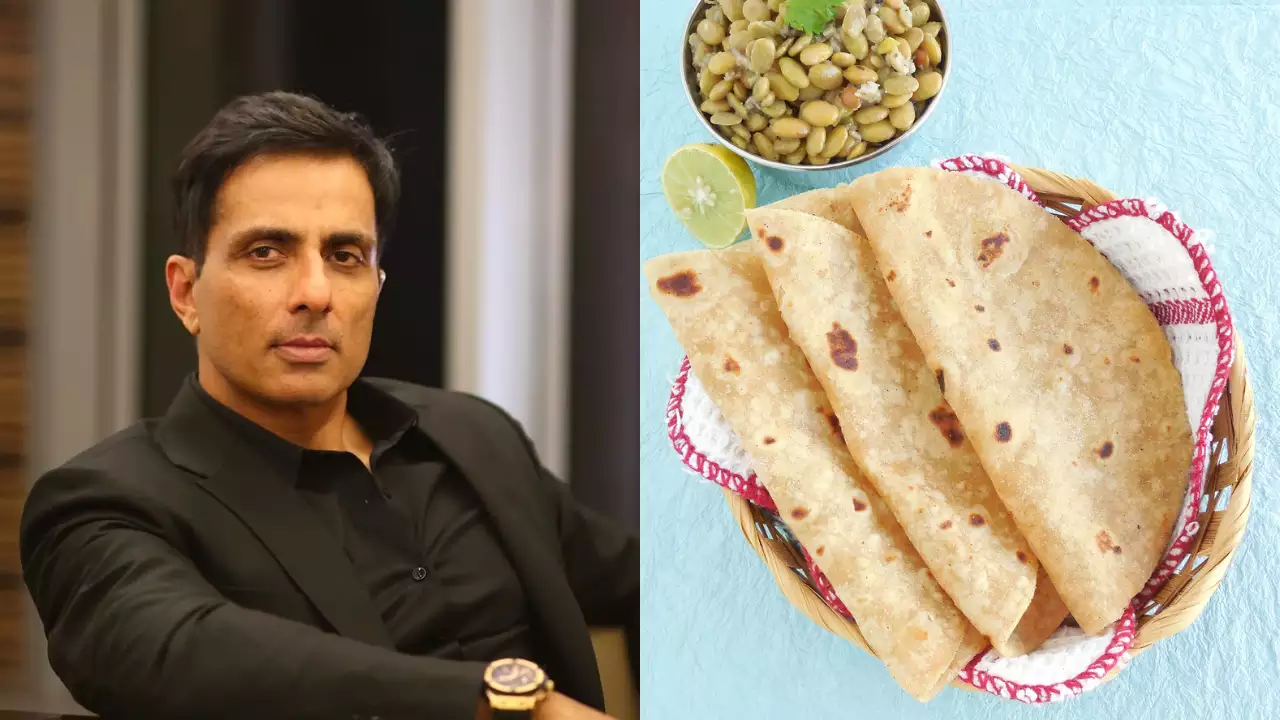
Image - sonusood/Instagram, Canva
Actor Sonu Sood recently revealed the secret to his fitness: a disciplined diet. In an interview with Jist, he shared details of his dietary habits, including his decision to eliminate chapatis from his meals.
“I follow a vegetarian diet, which some might find dull. When guests visit, they often joke that my meals look like hospital food. I just tell them, ‘This is my plate; eat whatever you like.’ While I stick to my strict diet, the rest of my family enjoys non-vegetarian dishes prepared by our amazing cooks,” he said.
Sood emphasised that he has always been easygoing about food, never being picky in school, college, or adulthood. However, he recently stopped eating chapatis. His daily routine includes a small bowl of dal and rice for lunch, while breakfast consists of options like egg-white omelettes, salads, avocados, sautéed vegetables, or papaya. Though he occasionally indulges in makki ki roti (cornbread), it’s a rare treat. “The key is eating healthy and staying consistent,” he added.
Rotis, a staple in many South Asian households, are made from whole wheat flour and serve as a primary source of carbohydrates. Eliminating them from your diet can have several effects on your body, depending on your nutritional choices and overall lifestyle.
Here's what you need to know.
1. Reduced Carbohydrate Intake
Rotis are high in complex carbohydrates, which means they provide long-term energy. Their complete elimination may result in the drastic reduction of carbohydrate intake. This might be helpful for losing weight in some people, but it could also cause tiredness, irritability, or an inability to concentrate if alternative sources of carbs are not incorporated.
2. Impact on Fibre Intake
Whole wheat rotis provide good dietary fibre, which is an important source of maintaining good health for digestion. Eliminating these rotis without adding fibre from sources like oats, quinoa, fruits, or vegetables leads to conditions like constipation and poor gut health. It helps to control blood sugar and cholesterol.
3. Weight Loss or Gain
Cutting out rotis for a sedentary person would really help reduce calories and eventually reduce weight. If you replace the rotis with high-calorie or refined substitutes, such as white bread or processed foods, you might end up gaining weight. It depends on the nutrient balance of the meal with your healthy substitutes.
4. Micronutrient Deficiencies
Rotis contain a number of essential nutrients, such as iron, magnesium, and B vitamins. To avoid deficiencies, it is best to continue including foods similar in nutrient density. This is especially important for those at risk for anaemia or low energy levels.
5. Effect on Blood Sugar
For people managing diabetes, removing rotis might seem beneficial due to their carbohydrate content, but since whole wheat rotis have a low glycaemic index—with the food releasing sugar slowly—replacing them with a high-GI food source would result in higher spikes of sugar in the blood.
6. Adaptation and Long-Term Impact
If rotis are taken out as part of a larger diet plan, such as switching to a keto or low-carb diet, the body will take some time to adjust. This can cause headaches, muscle cramps, and fatigue, commonly referred to as the "keto flu."
Get Latest News Live on Times Now along with Breaking News and Top Headlines from Health and around the world.
